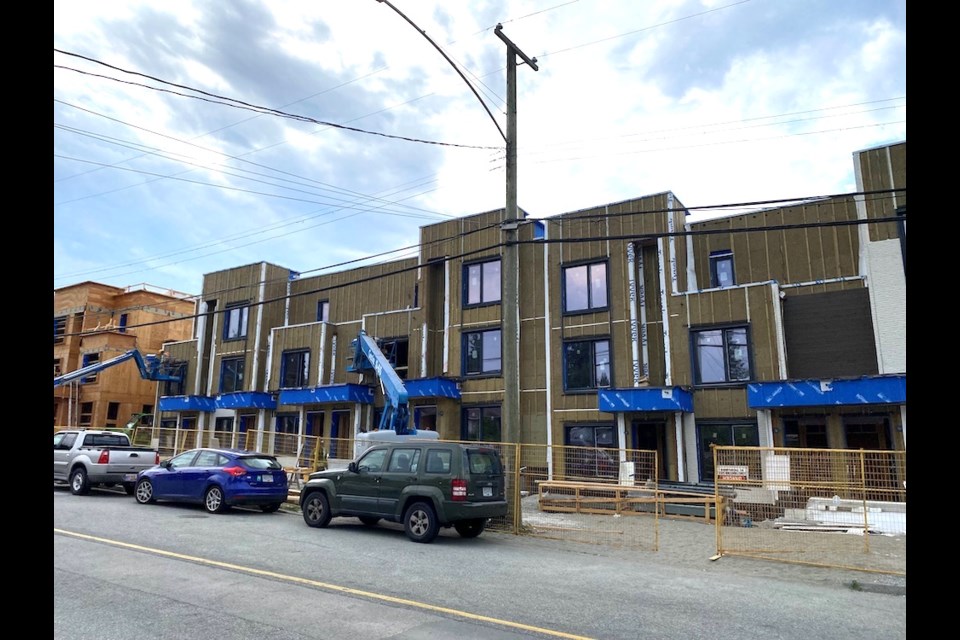A Scandinavian-inspired townhouse project, called Skagen, that's taking shape in west Coquitlam is promising massive energy savings for homebuyers.
The 52-unit townhouse project is already sold out.
But occasionally units come up for sale, like one did recently that was listed for $1.36 million, down $40,000 from the original asking price, according to Zealty.ca.
Located at 606 Foster Ave., Skagen is described as having passive house design, an international certification that requires specific construction methods, such as double insulation, and a continuous insulating envelope all around the building.
In its literature, Skagen promises an airtight home, a heat recovery ventilation system that provides fresh air, as well as super-insulated walls and triple glazed tilt and turn windows.
Why build passive houses
The goal is to provide provide 80 per cent energy savings compared to a typical home. This can be accomplished because passive houses are so energy efficient, it costs less to heat and cool them
According to Passive House Canada, buildings consume up to 40 per cent of global energy use and contribute up to 30 per cent of annual global greenhouse gas emissions.
With their energy-saving construction, passive houses are "a key piece of the puzzle towards a low-carbon future," Passive House Canada states.
Developers, such as Eighth Avenue Development Group that's building Skagen, are starting to take notice, as are architects.
But passive houses are not cheap, and typically cost about about five to 10 per cent more to build, according to Richard leBrasseur, an assistant professor of landscape architecture and director of the Green Infrastructure Performance Lab at Dalhousie University.
(Read his blog here and watch a video about passive houses.)
Are passive houses expensive?
Even the certification process itself costs about $5,000, but the costs can be recouped through rebates and long-term energy efficiency, according to leBrasseur.
The B.C. government is also supporting construction innovation through Clean BC, providing a grant to a new prefabricated Passive House construction system,
"Net Zero" is another ultra-low energy building style that uses very little energy for heating and cooling.
A net-zero building produces at least as much energy as it consumes. Through renewable energy sources, like solar panels, it can even produce more energy than it uses and sell it back to BC Hydro's grid.
Still, these types of buildings are a long way from becoming common.
Passive House Canada reports 88 certified residential, commercial and institutional buildings in the country, most of them in B.C.
As for net-zero homes, leBrasseur states that there are fewer than 500 of them across Canada.



